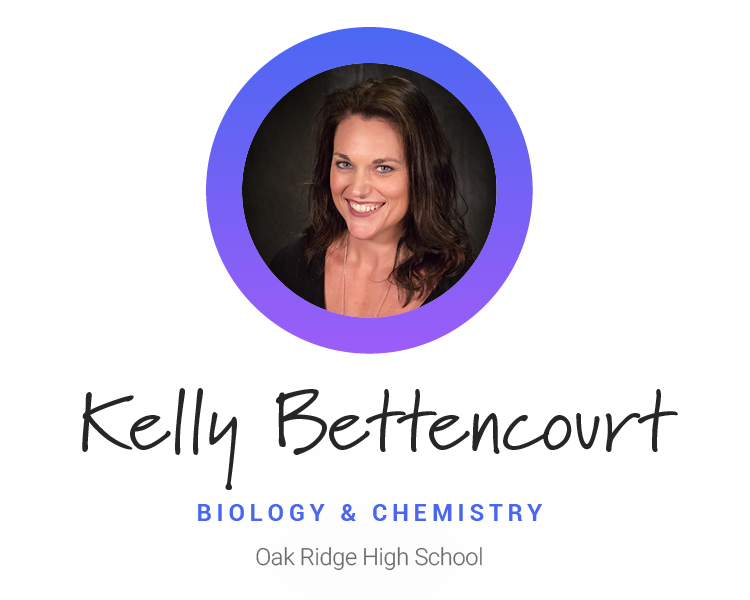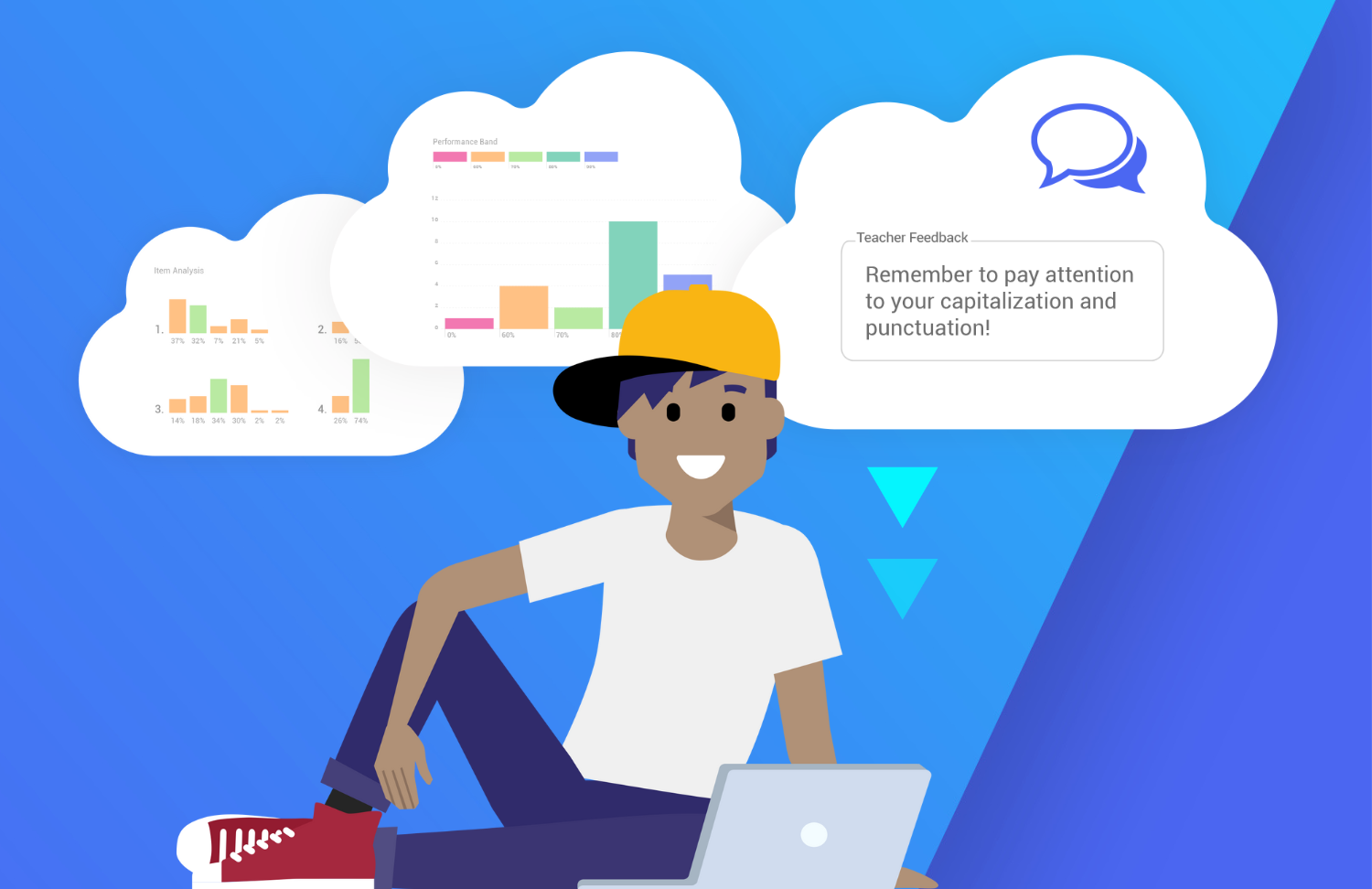Teacher Feature: Kelly Bettencourt
Let’s celebrate the educators making a difference day in and day out for their students.
Nothing about this school year has been normal, but teachers and administrators are working tirelessly to make sure their students make progress despite the odds. They inspire us. We hope they inspire you too.

Q: Describe your teaching approach and how it has been impacted by remote/hybrid learning.
My teaching approach is usually inquiry-based and very hands-on. I use model-based reasoning in my science classes, and while that works extremely well face to face, it doesn’t lend itself easily to distance learning. I had to tweak how I hold my classes entirely. My teaching style relies on a lot of student collaboration, which is very doable in an online format, but I had to be inventive to create the same kind of opportunities that my in-person students normally have.
I was able to use a variety of educational technology applications to facilitate the collaboration and sense of community I normally have in my classrooms. Despite the barriers, my students were very successful this year, because of the fabulous edtech tools available to me, as well as my students’ willingness to embrace change and adapt.
How did you get started with Gradient and what sold you on it?
I found Gradient initially when I transferred to a new site that used traditional Scantrons for their finals. #1 I didn’t have enough scantron sheets. #2 I knew there had to be a better way. A quick Google search later, I found Gradient. They offer a free trial, so that’s what I did. Gradient was so easy to use, I was able to figure out how to create my final key and print forms for my classes during a prep period.
I knew Gradient was a game-changer when I was able to score my students’ finals with my phone during the period, auto-transfer their scores to my gradebook, and have their final grade submitted before they left the classroom. After continuing to use it the following semester and discovering how easy the data analysis was, I was hooked. I introduced it to my department of 13 teachers and eventually rolled it out to the school.
Do you have any tips for teachers just starting to use Gradient?
When starting out with Gradient, use low-stakes formative assessments, like a quiz or an exit ticket, to take it for a spin. See how easy it is to create a key and choose the question format. After all, Gradient offers a lot more than multiple-choice. Print, give to students, and scan. This allows for quick feedback for you and your students!
Dive into the data analysis, standards alignment, and observational forms. What I love about Gradient is how customizable it is for my classes. I can tailor Gradient to do what I need it to do to benefit my students and further my own educational practice. See how Gradient can further your own teaching practices.
What role does data play in your school and how do you leverage it to inform what you do in the classroom?
As a standards-based science teacher, data plays a huge role in both my classes and my department. We are used to making data-driven decisions to further our scope and sequence and teaching practices. Day-to-day, I use data consistently to differentiate my instruction based on student needs.
I am easily able to attach standards to questions to evaluate my student’s progress and proficiency. I’m also able to separate out standards within the assessment to not only view them separately but also to easily upload those standard scores to my gradebook. We also use the data from common assessments to drive instruction and remediation.
What has kept you motivated as a teacher since the start of COVID-19?
I became a science teacher because of my love of science and my passion to share it with others. The pandemic has demonstrated just how important science educators and communicators really are. My purpose has always been for my student’s to leave my classroom with basic scientific literacy and that purpose has only been fueled during this past year.
What’s the most satisfying part of your job?
I love when my students tell me that they learned how to think because of my class. I love when they express an interest or even a love of science that wasn’t there before. I love it when my colleagues express that one of my ed-tech training helped make their life easier. Sparking curiosity and helping people think a little bit differently about the world around them is why I love my job.

Educator On Social Media:
Too many GoogleForEdu educators to name. This Twitter PLN has been a lifesaver this year!
Gradient Question Type:
All Auto-Graded Items
Gradient Feature:
Standards Alignment to Questions
Gradient Report:
Item Analysis
Lunch Item:
Leftovers
Favorite Memory From When You Were Your Students’ Age:
Dating my boyfriend who is now my husband of 20 years
Favorite Quote:
“The good thing about science is that it’s true, whether or not you believe in it.”
– Neil deGrasse Tyson


